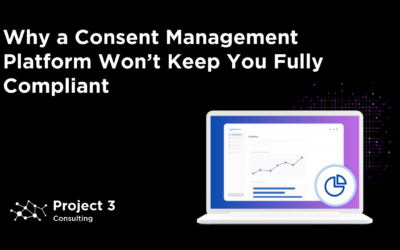
Google Analytics 4 (GA4) is the latest iteration of Google’s powerful analytics platform, designed to give businesses a more complete and actionable understanding of customer behavior. Built with a future-focused approach, GA4 shifts away from the traditional session-based model used in Universal Analytics, replacing it with a more flexible, event-based model. This change allows businesses to track user interactions—whether they happen on websites, mobile apps, or offline environments—in a more granular way.
Key Benefits of Google Analytics 4
1. Cross-Platform Tracking GA4 allows businesses to track user interactions across websites, mobile apps, and even offline, giving a full picture of the customer journey. This provides insights into:
- Unified tracking across web and app platforms.
- Better understanding of customer behavior across devices.
- Enhanced multi-channel attribution to optimize marketing campaigns.
2. Event-Based Data Model Unlike Universal Analytics, which relies on sessions and pageviews, GA4 is event-driven. This allows businesses to:
- Track any interaction as an event, giving flexibility in the types of data captured.
- Customize events without modifying the site’s code, thanks to GA4’s simplified tracking setup.
- Dive deeper into user actions, like scrolls, clicks, and video engagements, providing richer insights for improving user experience and conversion rates.
3. Enhanced Privacy and Compliance In a world of increasing privacy regulations, GA4 has been built with data privacy in mind. GA4:
- Provides stronger data governance and more robust privacy settings.
- Eliminates reliance on third-party cookies, future-proofing your business against upcoming cookie deprecation.
- Offers built-in consent management tools to help businesses stay compliant with GDPR, CCPA, and other privacy regulations.

Limitations to Consider
1. Steeper Learning Curve GA4 introduces a completely different interface and methodology compared to Universal Analytics. This can lead to:
- A learning curve for teams used to the old system.
- The need for additional training or external consulting to understand advanced features like custom events, audiences, and user properties.
- Potential confusion for smaller businesses without a dedicated analytics team.
2. Limited Historical Data Since GA4 doesn’t carry over historical data from Universal Analytics, businesses may face challenges:
- In comparing long-term data trends, as GA4 tracking starts from scratch.
- In maintaining continuity in reporting, especially during the transition period from Universal Analytics to GA4.
3. Feature Maturity GA4 is still being enhanced, and while it offers new capabilities, certain features from Universal Analytics haven’t been fully replicated. For example:
- Advanced reporting and segmentation options may not yet meet the needs of enterprise-level users.
- Integration with third-party tools may require further customization or support.
How Does Google Analytics 4 Stand Out?
GA4’s ability to provide a complete, cross-platform view of user behavior makes it a key player in modern analytics. Its event-driven model, customizable tracking, and focus on privacy make it especially suitable for businesses looking to future-proof their analytics in a privacy-first world. Additionally, GA4’s machine learning capabilities help predict outcomes and suggest new user segments, offering deeper insights for businesses willing to invest in leveraging these tools.
What People Are Saying
GA4 has received praise for its flexibility and forward-thinking approach. Users appreciate how GA4 can unify customer data from both web and mobile platforms and its intuitive event-based tracking. Many businesses are excited about GA4’s privacy-centric approach, which is crucial as regulations tighten.
However, some users have mentioned that the platform still feels underdeveloped in areas such as reporting and integration capabilities, especially for those coming from Universal Analytics. Despite these concerns, most agree that GA4 is well-positioned to evolve with the changing analytics landscape.
Alternatives to Google Analytics 4
Some alternatives to GA4 include Matomo, Adobe Analytics, and Piwik PRO.
- Matomo offers a privacy-focused solution with on-premise hosting, allowing businesses to have full control over their data.
- Adobe Analytics provides advanced reporting and predictive analytics, making it ideal for large enterprises with complex data needs.
- Piwik PRO delivers GDPR-compliant analytics, focusing on businesses that prioritize user data privacy.
Is Google Analytics 4 Right for You?
GA4 provides powerful, privacy-first analytics tools designed for businesses seeking to track users across multiple platforms. Its machine learning insights and customizable event tracking offer businesses deeper insights into user behavior. However, if you’re a small business or lack a dedicated analytics team, the complexity and learning curve of GA4 may require additional support.
Ready to Make the Transition to GA4?
If you’re considering transitioning to GA4 or need assistance navigating its features, Project 3 Consulting is here to help. Our team of experts specializes in GA4 implementations and can guide you through setup, customization, and reporting to ensure you’re making the most of Google’s latest analytics platform.
Contact us today to start leveraging the power of GA4 for your business.




